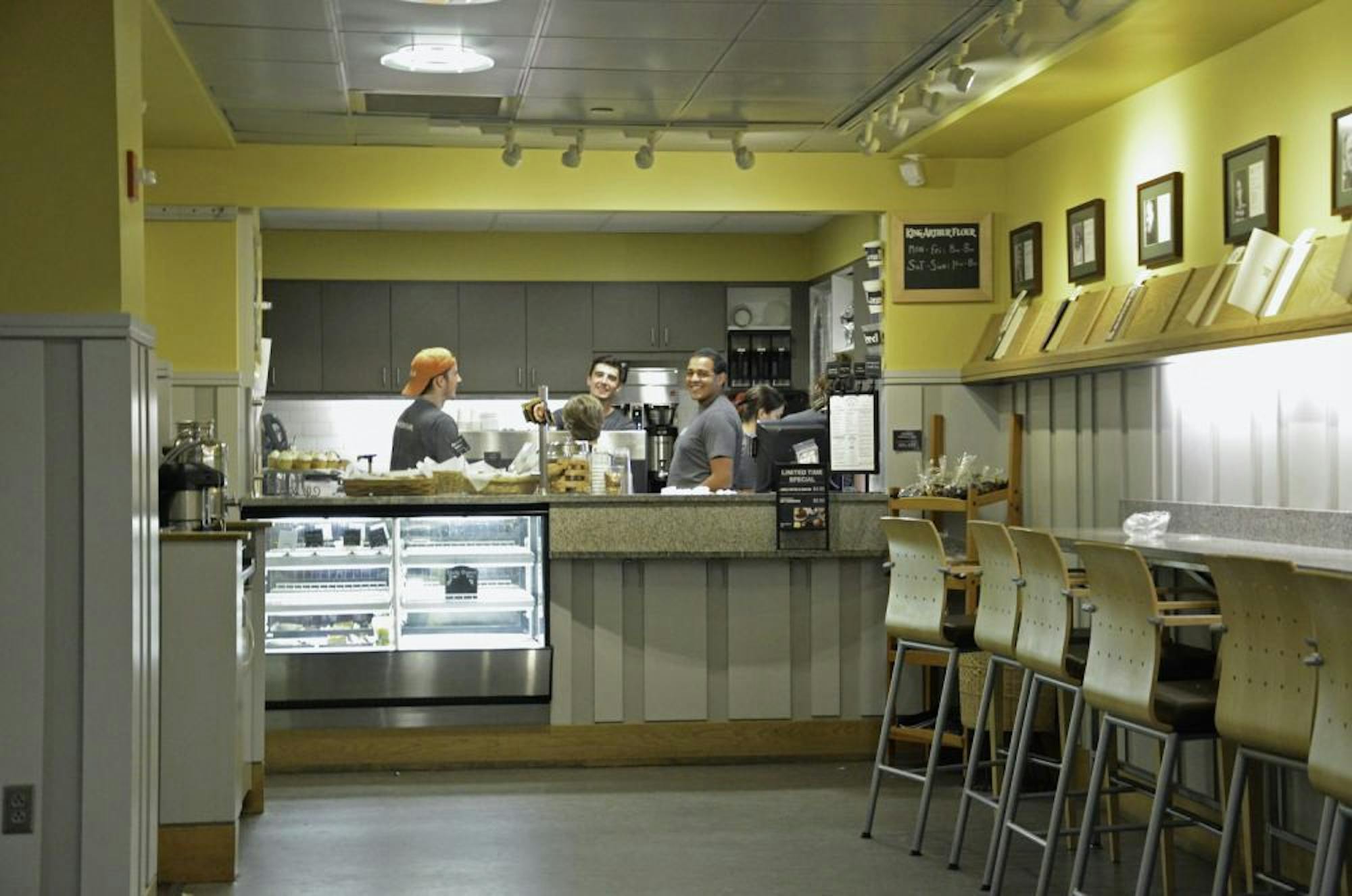King Arthur Flour will hold its second annual MELT: Grilled Cheese Challenge at its flagship store in Norwich, Vermont this Saturday, Jan. 21.
Four teams of KAF employees will serve their variation to customers on the grilled cheese sandwich, featuring local ingredients. With a five dollar donation, people can sample the four different sandwiches, along with tomato soup, then vote for their favorite variation.
Last year’s winner was the French Melt, which included Cabot extra sharp cheddar, caramelized onions, maple mustard spread, Vermont Creamery sea salt and maple butter – all on sourdough bread.
All proceeds benefit Warmth, a statewide emergency-based program that utilizes donations to provide home heating assistance to low-income families. The Warmth program is administered by Community Action Agencies, a group of nonprofit agencies, including the Champlain Valley Office of Economic Opportunity, designed to fight poverty across Vermont.
The Warmth program supplements the federal Low Income Home Energy Assistance Program, which is designed to assist families with energy costs, and the state’s Crisis Fuel Assistance services.
“Home heating is continually an issue because of plain and simple poverty,” said Jan Demers, executive director of the Champlain Valley Office of Economic Opportunity. “The deepest, most immediate crisis need is answered through the Warmth program.”
According to the Warmth program’s annual report, Community Action Agencies staff screen applicants for income eligibility and need. Applicants must be within five to seven days of running out of bulk fuel or in danger of having their utility service disconnected in order to be considered for Warmth financial assistance.
Most Warmth donations come from customers of participating fuel and utility companies that help distribute fundraising information and raise awareness about the program, Demers said, adding that the majority of Warmth funding is both raised and spent by CVOEO.
Weatherization programs of many Community Active Agencies provide a more long-term way to tackle the issue of home heating, Demers said.
She added that if a household uses a lot of LIHEAP dollars, it would automatically get referred to the weatherization program as well, which insulates homes so that they are both warmer and take less fuel to heat up.
Warmth’s annual report stated that it raised $419,488 and assisted 2,939 households in the 2015-2016 season.
“The Warmth program really is about neighbor helping neighbor,” Demers said. “We all know what it’s like to be cold. So when you’re sitting in a warm home, realize that your neighbors might not be able to. That’s where the donations come from.”
Facilities operations and management associate vice president Frank Roberts said that the College is in the process of finalizing the study of transitioning to a hot water-based heating system from its current steam heating system.
The College burns approximately three and three quarters of a million gallons of water a year, Roberts said, adding that if a house uses approximately 1,000 to 1,500 gallons a year, the Dartmouth campus uses as much as approximately 3,000 houses.
Roberts said that hot water-based systems are approximately 20 percent more efficient than steam systems and have many other advantages.
“When you consider the reduction in greenhouse gases, the fact that [hot water-based systems] are more efficient and economical, require less maintenance, are much easier to control and lead to greater occupant comfort, there are a number of reasons to make this decision to convert from steam systems to hot water systems,” Roberts said. “We just have to do the economic analysis because it is a significant investment.”
Roberts also said that people can be more energy-efficient by having a good building envelope: making sure that doors and windows are closed, weather-stripping and paying attention to the set point of the thermostat – keeping the thermostat closer to 68 degrees Fahrenheit as opposed to 75.
Last year, KAF raised approximately $600 and served around 120 people through the Grilled Cheese Challenge. All of the sandwiches were sold out within half an hour. KAF marketing coordinator Natasha Payton said that they are better prepared this year for the anticipated large crowd and hopes to surpass last year’s amount of $600.
Besides the Grilled Cheese Challenge, KAF also organizes other events throughout the year that benefit local charities, Payton said. The next event will be Maple Daze on Mar. 25 and 26, a pancake breakfast with KAF pancakes, maple syrup, bacon and coffee. Donations from this breakfast will benefit Vermont Food Education Every Day, an organization that raises awareness about healthy food and nutrition.
Payton added that popular past events include the annual Sundae Sunday, an ice cream social with Ben and Jerry’s ice cream, Cabot whipped cream and sundaes. All donations benefited David’s House, which provides support for families with children receiving treatment through the Children’s Hospital at the Dartmouth-Hitchcock Medical Center, she said.




